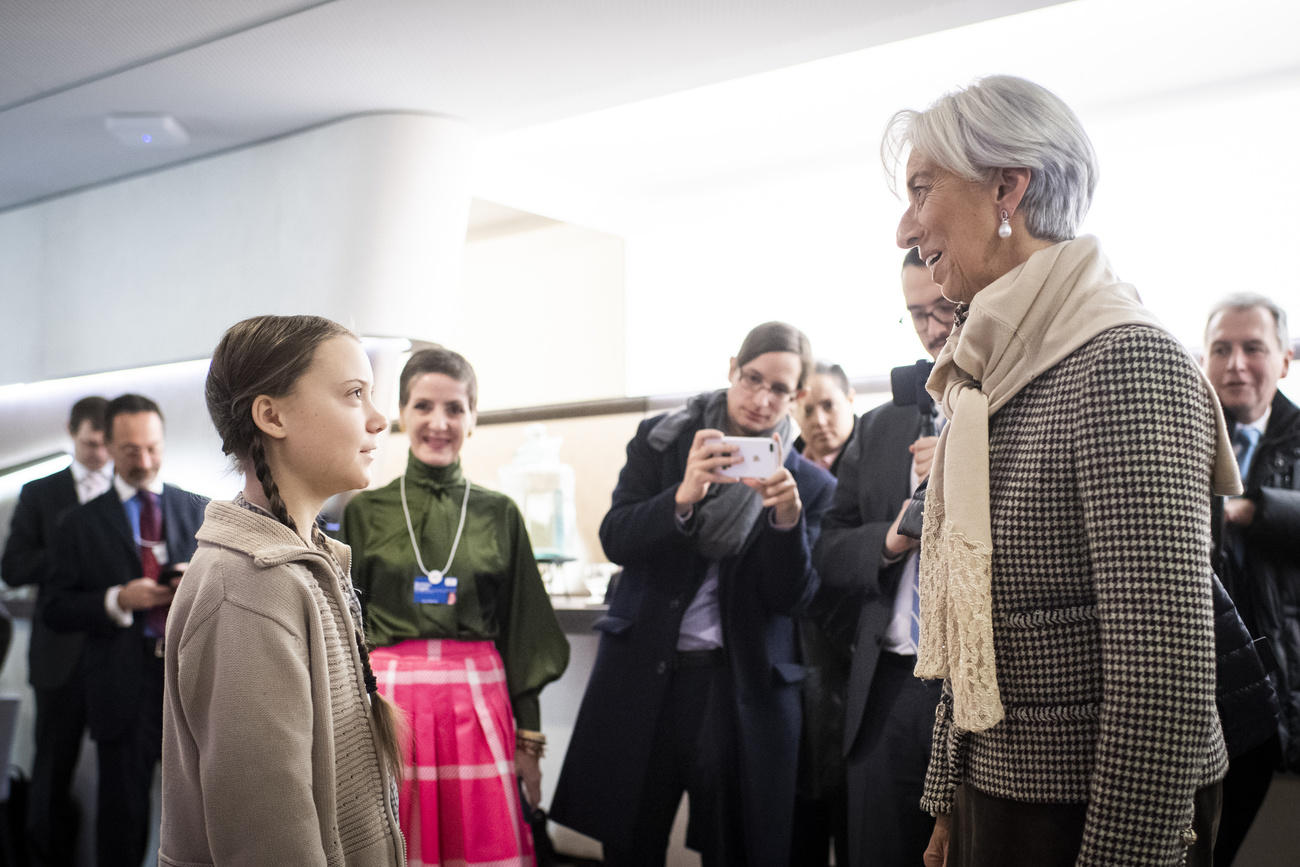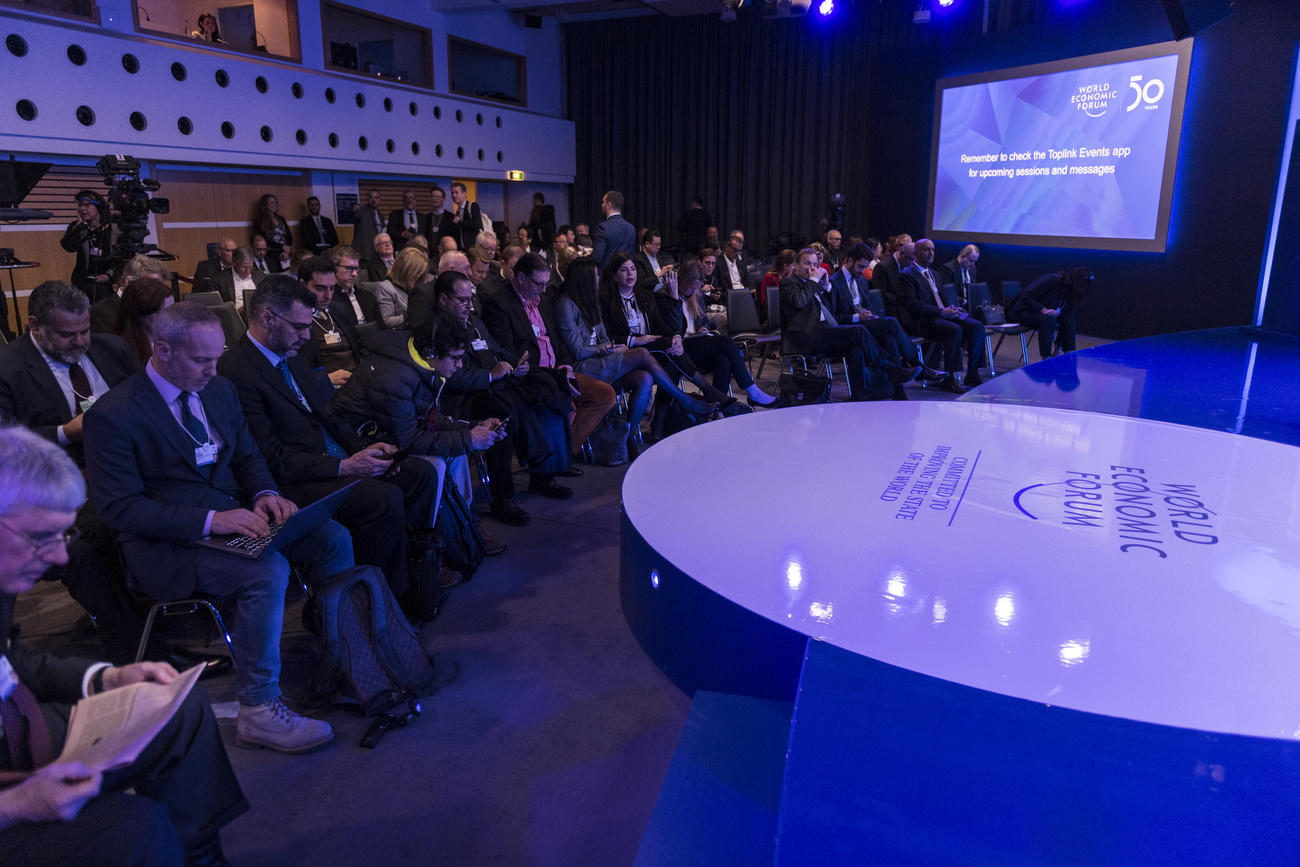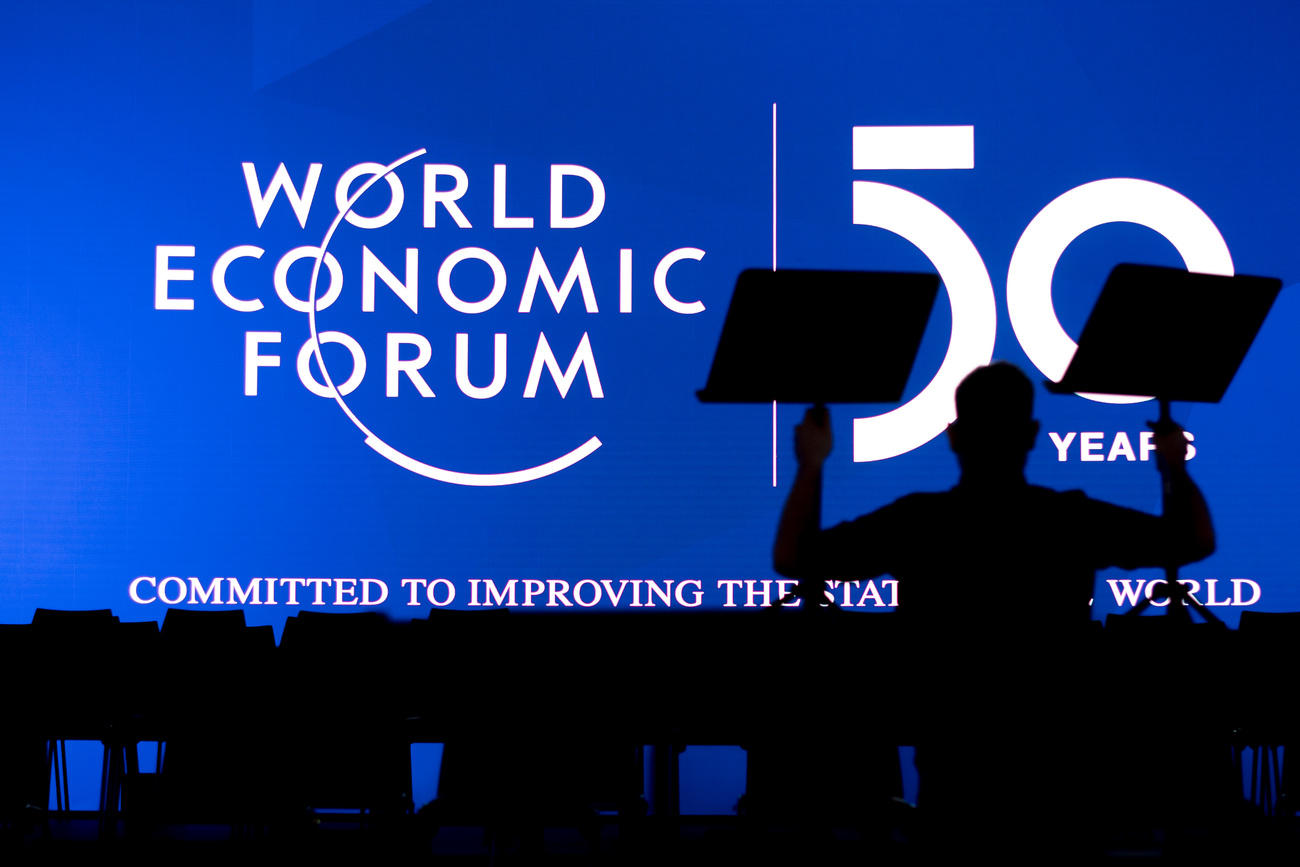Welcome to a ‘woke’ WEF

This time last year I began my column with the words ‘it’s that time of year again’. And indeed, it is that time of year again. Time for the World Economic Forum (WEF), or Switzerland’s annual schmoozefest in the snow, as cynics sometimes term it.
Once again, the halls of the United Nations Palais des Nations in Geneva are echoingly empty. Once again, the UN aid agencies have packed their bags and headed to Davos, hoping for attention, and of course funding, for the humanitarian work they do.
Much has been written about the usefulness or otherwise of Davos, and a lot of questions have been asked about the ethics of humanitarians attending the forum: is it worth the money they spend in those expensive hotels? What is their increased carbon footprint flying to Davos, as some of them do?
Above all, how much do the world’s business and political leaders really pay attention? How often does the facetime with a billionaire CEO of a global brand actually translate into genuine financial and reputational commitment to a humanitarian cause?
Talk versus walk
The WEF is 50 years old this year, and anyone who goes will know that humanitarian, environmental, and social topics have been on its agenda for years now. Its perennial slogan is ‘improving the state of the world’. This year’s special theme is ‘stakeholders for a cohesive and sustainable world.’ It sounds great, but is this more than words?

More
Who’s who at WEF 2020 in Davos?
The burning issue of climate change was put top of the WEF agenda a good 15 years ago by then UK prime minister Tony Blair, who devoted his keynote speech to global warming. Fifteen years on, the world is experiencing its hottest summers ever, with fires raging in Australia, and the ice pack melting in the Arctic.
For the last five years at least, the UN Refugee Agency has lobbied hard in Davos, sending the High Commissioner, bringing celebrity supporters like Angelina Jolie on board, and even offering eager business executives the chance to experience the trauma (for an hour or so) of fleeing war and persecution.
But the numbers of refugees and others forced from their homes continue to rise, reaching record levels not seen since the Second World War. At the same time, many of the world’s richest countries are tightening their asylum policies. Their key political efforts seem to be directed at keeping people out, rather than offering protection to the vulnerable.No wonder so many people have the uncomfortable feeling that business leaders and politicians are happy to talk the talk in Davos, but not walk the walk when they get back to their day jobs.
Is it worth it?
“We actually debate this,” says Kelly T Clements, the UN’s Deputy High Commissioner for Refugees, who is attending Davos this year. “As to whether or not we are going to go again.”
Clements points out that when Antonio Guterres was boss of the UN Refugee Agency, he did not go to the forum. But now, as UN Secretary General, he will be there.
And together with Clements, Guterres’ successor, Filippo Grandi, will be there too. Not just for some networking with business leaders, but to build on very significant partnerships the UN Refugee Agency already has with business.
Last December, when the agency held its Global Refugee Forum in Geneva, there was a landmark press conference with senior managers from Ikea, Vodafone, and the Lego Foundation, explaining their commitment to supporting the UN’s work with refugees.
Significant amounts of money and skills were committed, but, more surprising perhaps for the journalists attending, was the business leaders’ promise to contribute to a positive debate about the role of refugees in our society.
“We want to participate in changing the narrative around refugees,” said Tolga Oncu of Ikea. To do that, his company says it wants to support training and language programmes, in order to increase the employability of refugees, and it wants to employ them at Ikea.
“It’s good business to do good,” said Oncu.

More
Inside Geneva: What kind of year will it be for the UN?
What a slogan! One that might convince even the cynics that there is some merit in partnerships between business and the humanitarian world, whether forged at the WEF, or, as the UNHCR is doing, creating, building and expanding them all year round.
Tinkering around the edges?
It is certainly true that many of the big aid agencies are involved with business in radical new thinking about how to cooperate to solve some of the world’s most pressing humanitarian crises.
But how much of this is just tinkering around the edges of a system created and supported by those political and business leaders? A system, some argue, that is a key cause of many of the crises we now face, particularly in relation to inequality, poverty, or climate change.
Vinay Saldanha, special advisor to the new Executive Director of UNAIDS, Winnie Biyanyima, agrees that Davos is an “amazing opportunity” to push business to make commitments.
Biyanyima, a former head of Oxfam, has been going to the WEF since 1996, and will be there again this year. But, Saldanha adds, UNAIDS is focused not on “ending AIDS at some abstract point in the future, but by 2030. The world needs to end the global AIDS epidemic as a public health threat once and for all. And we’re not going to get there by champagne inspired meetings in the mountains of Switzerland.”
Saldanha sees Davos as a chance to push causes, hold leaders’ feet to the fire over commitments they have already made, and “accelerate” action, because, he adds “business as usual won’t get us there.”
Everyone needs to be part of the solution
Other WEF-watchers agree that humanitarians face a dilemma when going to Davos. Heba Aly, director of the New Humanitarian, a news website specializing in humanitarian issues, faced an angry backlash when readers learned that her journalists were going along.
“They were saying ‘oh, so now you’ve gone from amplifying the voices of the most vulnerable to hanging out with the elite,’” she remembers.
Nevertheless, Aly believes aid agencies are right to recognize that “the landscape is changing, and that the UN and governments no longer hold the monopoly on solving the world’s problems. Everyone needs to be part of the solution”.
But she adds: “if we accept that the elite and the capitalist system are at fault for the massive inequality that we see today, should we be turning to them for solutions?”
There is no definitive answer to that question. But what is clear is that business now understands the need to be proactive in the biggest challenges facing humanity.
Some of the events at Davos may sound superficial: the chance to have a climate-friendly vegan lunch for example. But Nestle, one of the world’s biggest food producers, has announced its plan to make all its packaging recyclable or reusable by 2025, and is promising to achieve zero-net greenhouse gas emissions by 2050.
Those are big promises from a big company, and, if delivered, will make a real difference. So too will the promises of Ikea, Vodafone, and Lego to donate hundreds of millions of dollars and equipment to support refugees. Bigger still will be the difference they could make with their promise to change hearts and minds about refugees, to include them in the workforce, and promote their positive contribution to society.
If they really do deliver, it will achieve more than a little tinkering around the edges of a fatally flawed system. It might change the system for good, change business for good, and the lives of millions for good.

More
Inside Geneva: Why humanitarian groups go to Davos
You can follow Imogen Foulkes on twitter at @imogenfoulkes, and send her questions and suggestions for UN topics.

In compliance with the JTI standards
More: SWI swissinfo.ch certified by the Journalism Trust Initiative











You can find an overview of ongoing debates with our journalists here . Please join us!
If you want to start a conversation about a topic raised in this article or want to report factual errors, email us at english@swissinfo.ch.